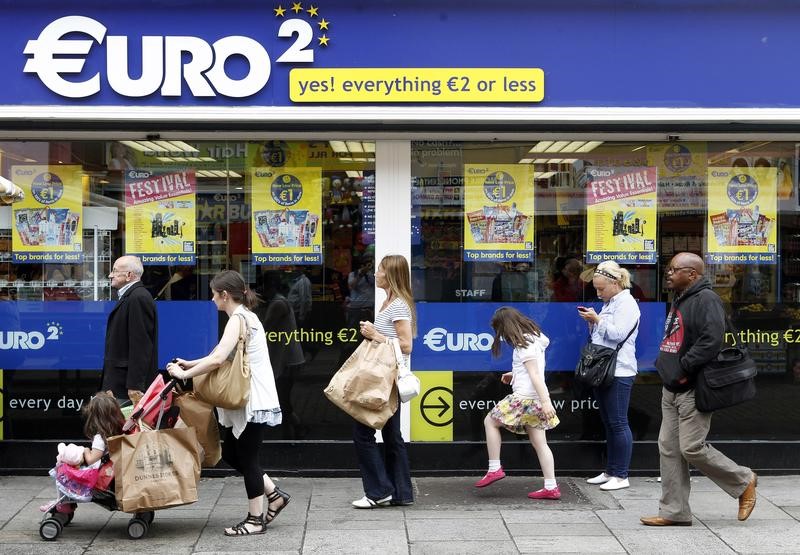DUBLIN (Reuters) - Irish consumer sentiment fell to its lowest level in almost two years in October, a survey showed on Tuesday, adding to signs that an economic recovery in the European Union's fastest-growing economy may be slowing.
Irish economic growth is still set to be the highest in the EU for the third successive year. But the finance ministry last month cut its GDP forecast to 4.2 percent from 4.9 percent amid slowing growth in retail sales, tax take and business surveys.
The KBC Bank Ireland/ESRI Consumer Sentiment Index fell to a 20-month low of 97.3 from 102.0 in September and well below the 15-year high of 108.6 hit at the start of the year, as views on household finances were sharply downgraded.
"Our sense is that this does not reflect a major change in thinking. Instead, it seems to reflect a further step up in unease that a much-vaunted economic recovery has failed to deliver any marked improvement in financial circumstances," KBC chief economist Austin Hughes said.
"Consumers have also become increasingly conscious of an increasing array of risks to the downturn of late ranging from Brexit through to the Apple (NASDAQ:AAPL) tax case and to some high profile domestic industrial disputes."
The survey was largely taken before last month's budget for 2017, but the government had flagged that tax cuts and benefit increases would be limited, which Hughes said may have caused some to focus on the limited extent to which the deterioration in their finances has been reversed in recent years.
Ireland had to impose years of spending cuts and tax hikes after a financial crisis pushed it into a three-year EU/IMF bailout in 2010. While economists say recent data continue to point to robust growth, the recovery appears to softening.
Annual retail sales growth of 3.8 percent in September was the slowest in almost three years and down from an expansion of 8.3 percent in 2015, while the finance ministry has said it will likely need strong receipts in the last two months of the year to meet its annual budget deficit target.

Purchasing Managers' Indices (PMI) for the manufacturing and services sectors have also shown a marked slowdown in growth, mainly due to the uncertainty caused by Brexit and the impact a weaker Sterling is having on Irish exporters who are highly reliant on the neighbouring market.